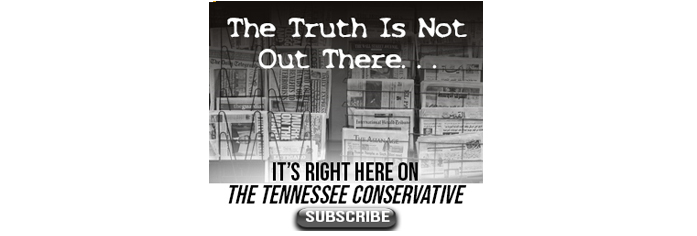The Center Square [By William Haupt III]-
“Journalism can never be silent: that is its greatest virtue and its greatest fault.”
– Henry Grunwald
The media’s reluctant coverage of the tragic death of Americans, and an ambassador in Benghazi, in 2012 during President Barack Obama’s second term, is a shameful example of blatant media bias. Testimony by the House Oversight Committee made it obvious they supported Obama operatives who blamed the attack on an internet video rather than al Qaeda, who he claimed he’d eliminated. The unsavory marriage of media and the left took a quantum leap forward when they ran interference for Obama.
The idea of the media as the Fourth Estate began life as a sarcastic term for the press gallery at Westminster. Conservative statesmen Edmund Burke coined the phrase as a way of shaming the press into reporting truth in parliament rather than opinions. Thusly in the intervening years, the Fourth Estate evolved: “Reporters must honestly retell what they see not what they want to see”.
The 18th century intellectuals, who gave us the conception that the Fourth Estate is the civil watchdog to keep an eye on those in power, provided the philosophical dialogue defining the public and the state as competing entities. The public wants to hear the truth and those in power want them to know what they wish them to believe. Henceforth, journalists became accountable to the people.
In Federalist 10, James Madison wrote that media factions would balance opposing factions and protect the freedom of the citizenry. This would limit the abuse of any faction’s power and influence over the nation.
“All men having power ought to be distrusted to a certain degree.”
– James Madison
The idea reporters should possess Olympian objectivity is meritorious, but that only existed while newspapers were dependent on selling papers. When their source of revenue was replaced by advertisers, factual reporting and accurate information went into receivership. Publishers made editors accountable to their advertisers, because advertisers were more profitable than readers.
By the 19th century, newspapers became less interested in the needs of readers and more intent on pleasing advertisers. They replaced objective, factual content with news that reflected the political views of owners and advertisers. As media bias became obvious, readers began rethinking their role in society. As papers became explicitly linked to a single political party, circulation suffered.
For example, during the California Gold Rush, the San Francisco Alta California was the enemy of Democratic Gov. John Bigler, whose press champion was the Stockton Republican. The news was slanted without facts and read more like dime store novels, rather than high quality news copy.
The circulation wars between Hearst and Pulitzer in the nineteenth century brought a torrid period of sensationalism, scandal-mongering, and exaggeration to reporting. The need to increase profits and please politicians and advertisers resulted in the rise of libelous tabloid style yellow journalism.
“People don’t realize the quality of their life depends on their quality of journalism.”
– Lewis Lapham
Historian Chilton Williamson believes the first progressive movement destroyed modern journalism. Politicians believed the function of the media was to instruct and shape voter opinions since they could not make the right choice with facts alone. Editors reasoned that facts would not accomplish their lofty goals. Facts should be presented the same way an attorney talks to a jury. They needed to convince people that the policies and the opinions of their politicians would improve their lives.
This unholy alliance was deplorable but it functioned similar to James Madison’s vision. With a vast number of papers voicing a variety of opinions, people had access to papers that represented their views or challenged those of others. However after WWII, several developments compromised this balance and made the press’s political partisanships more dangerous than any time in our history.
Before the 1960s journalism was a working-class trade as depicted in the film Front Page. When colleges began saturating newsrooms with university grads, journalism became a profession. As those who had started as copy-boys, obit writers, and cub reporters vanished from the newsrooms, they were replaced with for-profit, mercenary job seekers who were for sale to the highest bidder.
By 1970, “Journalism could be described as turning one’s enemies into money.”
– Craig Brown
These university trained reporters brought the indoctrination from their colleges with them. Leftist influence on journalism soon dominated media. The progressive view that the press should mold opinions to achieve political and social goals morphed into a fundamental ideology. Media made a commitment to ally with the far liberal left who supported the same ideology they learned in college.
The event that embellished media’s leftist ideology was the Vietnam War. The left viewed it as a neo-imperialist attempt to aide an oppressive regime of capitalists dead set on stopping a liberation movement. It became the duty of the media to liberate the minds of citizens from those delusions.
Media distorted casualties, and successful efforts against the Viet Cong. They readily convinced Americans the South was so corrupt it was a liability and they’d be better off if the North won the war. The New York Times editorialized “The Vietnam effort is doomed because the South is so weak.” There was nary a word about the tremendous successes of General Creighton Abrams.
Teddy Roosevelt said, “To anger a liberal, tell him the truth.” Since Vietnam the media has been pandering to the lowest-denominator of wisdom and eagerly became a pulpit for the socialist left. This forced the public to seek real sources of information. They discovered digital media, talk radio, cable news, and most importantly – the Internet. People now have a plethora of choices for news.
The biggest threat to journalism today is identical to what forced traditional media to abandon its vocation in the 19th century: financing. Newspapers soon realized this market would be their saving grace, and every paper has on-line newsrooms supported by advertisers. Independent journalists and forums have been forced to take on advertisers also. We’re seeing the effect of this right now.
Americans need factual content for liberty to survive. With a potpourri of choices, they must choose wisely. The only reliable news source for factual content is nonprofit, on-line journalism. They work under the IRS 501 banner of political anonymity. As nonprofits, they rely on donations for survival. While papers require monthly access fees, nonprofits allow you to read for free. Like media use to be, they rely on reader support to keep the presses rolling. Without funding, they can’t work for us.
It is time to stop paying for leftist indoctrination and donate the money to nonprofits for real news.
“The duty of journalists is to tell the truth. Journalism means you go back to the actual facts, you look at the documents, you discover what the record is, and you report it that way.”
– Norm Cosby





